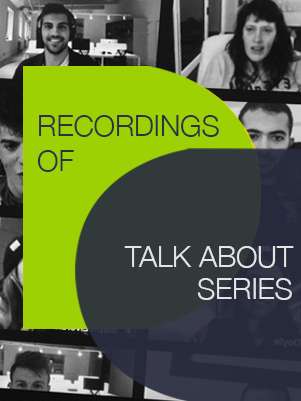International Student Newsletter
Dear International Students,
We hope you are staying warm and safe so far this semester.
在本通讯的公告部分,了解更多有关资源和活动的信息,这些资源和活动可以帮助您改善在波士顿大学的社交和学术体验。例如,了解职业发展中心提供的许多帮助你为职业做好准备的工具,并考虑参加3月27日下午4点的虚拟讨论:可转移技能和职业准备活动(注册信息即将发布)。如果你对帮助你的同龄人完成学业和职业生涯充满热情,考虑申请CCD & ERC学生大使职位(截止日期为3月12日)。如果你想和其他梗人建立联系,并激发澳门威尼斯人注册人类经历的对话,那就加入霍华德瑟曼中心的读书俱乐部(每周二下午4-5点)。2023年春季出版的书是Evette Dionne的《失重:为我有弹性的身体和灵魂创造空间》。最后,请注意,年度全球项目摄影大赛将于2023年3月20日至31日举行,今年的主题是“全球参与”。提交您的全球参与主题照片(最多3张!)是展示您在过去一年中在波士顿或世界任何地方参与全球活动的好方法!在美国就业部分,波士顿大学校友张立夫(22届CAS, 22届ENG)分享了他在b谷歌担任软件工程师的道路上的建议。在文化角,国际学生编程助理Doga Sevgi分享了她制作专业电子邮件的技巧。
We wish everyone good luck with any mid-term projects and exams!
Announcements

Howard Thurman Center Book Club
The HTC Book Club uses literature to spark thoughtful conversations about the human experience, discussing topics like culture, identity, and belonging. The Spring 2023 book is Weightless: Making Space for My Resilient Body and Soul by Evette Dionne- a collection of essays with connecting themes. Book club is every Tuesday, from 4-5 pm in the Gathering Space. All books are provided by the HTC.
More Information
Career Resources for International Students
The Center for Career Development offers a variety of tools and resources to help you get ready for your career. From self-reflection exercises to choose your major, to understanding your career type (there are 5 career types!), to improving your interviewing skills, the CCD can be an invaluable resource for international students at BU.
More information
Global Programs Photo Contest
The annual Global Programs Photo Contest is March 20 through March 31, 2023, and the theme is Global Engagement. All students are eligible to submit up to three photos. For a full description of the contest, prizes and submission guidelines please see the contest page.

Paid Leadership Opportunity
The CCD & ERC Student Ambassador Program is looking for undergraduate student leaders who are passionate about helping their peers through their academic and career journey. Ambassadors plan events, run programs, lead workshops, collaborate with professional staff, manage social media accounts, and more. The Application deadline is March 12.
More informationEmployment in the U.S.

A Word from Students
BU alum, Lifu Zhang (CAS’22, ENG’22) reflects on his time at BU and shares advice on his path to his current position as a Software Engineer at Google.
Read the Full StoryCulture Corner
Advice for Crafting Professional Emails
Written by Doğa Sevgi, International Student Programming Assistant
Being part of a community of scholars means you will need to reach out to the professionals, whether in your institution or outside, through emails. You might know how to approach the professionals in person settings but crafting emails can be tricky when you are starting off. There are some things you should be aware of before pressing “send” on that email but don’t worry, we are here to help.
Keeping the Subject Line Short
Even before starting your email, you should think about a short but meaningful subject line. Your subject line will indicate the general premise of your email and prepare the audience for the rest. Rethink your past experiences and how you chose to open or not open the emails depending on their subject line. It goes the same way when you are the one writing the email. It doesn’t only help the audience understand what it will be about but also allows them to sort through their own emails depending on the subject.
Addressing the Audience
Writing an email to a college professor or a company is different from writing an email to a high school teacher. You would need to approach significantly more professionally. Starting off with “Hi” or “Hello” (especially if this is the initial email) could be risky. Instead, one of the options below would be better:
- Dear (name) Professor
- To whom it may concern – for when you don’t know who will respond
- Dear (title)
These are good options to consider if you are the one reaching out to someone in a higher position than you. Depending on how they start their email you can change the addressing to “Hi (name) Professor”.
Keep to the Main Points
When you are writing the paragraph, keep in mind that the person reading the email might be on a time crunch so instead of telling them unnecessary information, try to stick to the main points. If not needed in the context, there is no need to explain every minor detail and thought process leading up to your final point of question. Another aspect to eliminate unnecessary information is to avoid run-on sentences. Focusing on writing shorter sentences will allow you to eliminate unnecessary information, repetition, and keep the attention on what answer you are looking for / what message you want to convey.
Usage of Emojis and Abbreviations (or lack of)
You should not use emojis in your emails. Although it may seem like you are being genuine or sincere, it gives off the impression that you are not professional or can be. Even though you are fully capable of taking the responsibilities you have, it would push people to not take you seriously going forward. This goes along with writing in abbreviations. To keep sounding professional you would need to fully type out the words unless it is a location well-known like the GSU.
Usage of Active Voice
While writing your email, it would be preferable to use active voice. Active voice will emphasize the person doing the verb mentioned in the sentence and not draw attention away from what is important. Some examples include:
- I completed the given task.
- The professor announced the grades.
- The group presented the project on Tuesday.
Although passive voice could be beneficial in some cases, most of the time the subject is expected to be the emphasis of a topic, therefore, expected to be drawn attention to.
Signing Off Professionally
After writing your email you would want to sign off. There are some simple ways of signing of, from more casual to more professional, including:
- Best,
- Thank you,
- Best regards,
- Kind regards,
All of the above should be followed with a full name. At times it might be beneficial to add your class section for the professor to find related information better targeted towards you. If this is for a work email you could add your job title, the line below your name. You could also create personalized signatures through the Gmail settings section where you wouldn’t have to type the signature every email, but have it added automatically.
Although there is no one way of crafting a professional email, there are still some basic steps that can guide you. Following these steps will allow you to sound professional, save time for your audience, and overall provide better communication between the parties.
The Compass
There are over 250 academic, housing, community, and employment resources currently on the Compass and each issue we will highlight two.





